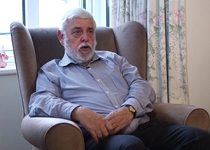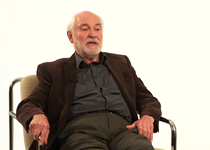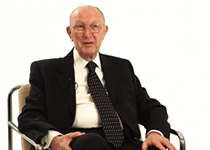
Martin’s story – Lifestyle

David’s story – Facing Surgery
The first week
It is important you continue walking around at home. Continue with checking your posture and deep-breathing exercises. Have a two hour rest in the afternoon and try to have a good eight hours sleep at night. Initially, you will feel more tired at home than you were in hospital. You will gradually regain your energy but may continue to experience ‘good days’ and ‘bad days’ for a number of weeks, this is quite normal.
If you were in contact with one of the lung Clinical Nurse Specialists (CNS) while you were in hospital they will contact you at home to ensure that you are recovering well and to offer advice.
From two weeks
You can start to increase your activity at home by taking on some light tasks such as cooking and washing up, but avoid any lifting, pushing or pulling. You can start taking short walks each day, increasing your distance weekly. It is very likely you will experience breathlessness but this will become easier as your progress continues.
From four to eight weeks
You should be ready to take on more activities such as ironing, light shopping and gardening. You should also be able to walk longer distances, but remember how far you have to walk back. Increase your amount of activity within your limits as the weeks progress and try to take on more tasks. Your first follow up appointment with the surgeon will be during this period, it is a good idea to prepare for this by writing down any questions you think of.
From nine to twelve weeks
Life should be returning to normal and your wound should be looking much healthier. If you previously played sport you can start to do so again, but this should be a gradual process. You should see your GP before taking part in contact or competitive sports.
Driving
Check with your insurance company before driving. Take an experienced driver with you to start with. You can usually begin to drive again 6 weeks after surgery, this depends on your comfort and recovery. Morphine may impair your ability to drive so wait until you do not need this regularly. You may find your shoulder is more sore after starting to drive again, listen to your body and allow a few days to recover.
Working
If you work, and are planning to return, the minimum period off is usually between 6 weeks and 3 months. This depends on your own recovery and what kind of job you do. You may need to start back part time and build up gradually. You may be surprised how tired you get to start with.
Please discuss your progress with your GP and with us when you come for follow up appointments in clinic. We can give you a medical certificate to cover a short period, you will need further certificates to be issued by your GP.
Leisure
It is good for your well-being to resume hobbies as you feel able to. Remember breathlessness will be normal for several weeks following your surgery. Your shoulder will need extra time to be comfortable doing some sports.
Going on Holiday
If you have planned, or are planning a holiday in the near future then you can take one as soon as you feel ready to travel, as long as this is not by plane.
If you plan to fly, you must have had a follow up chest X ray which shows the lungs are fully inflated. You must then wait at least a week after the chest X ray showing your lungs are fully inflated before flying. You cannot fly with a chest drain. Guidelines may change, you should check with your doctor before flying.
Travelling for prolonged periods increases the risk of blood clots (DVT), remember to keep hydrated and keep moving around. You should make sure you have medical insurance when you travel abroad. If you are going to be in the sun, ensure your wound is not exposed without a high factor (factor 15 or higher) sunscreen for about six months.
Sport
From 6-8 weeks you can build up to exercises such as swimming, walking, cycling and light jogging. Remember breathlessness will be normal following your surgery for several weeks, and you need to aim to be slightly breathlessness when doing your exercise.
If you previously played sport you can start again gradually. You should consult your GP before taking part in contact or competitive sports.
Sex
You can continue your sex life when you feel well enough and your partner is also ready. At first you may find that you are uncomfortable or short of breath. If you are in pain or very short of breath, stop. Listen to your body and allow a few days to recover. Avoid positions that involve leaning on your arms to start with.
Scuba Diving
Diving produces significant changes in the respiratory system. You must have a specialist assessment of your individual fitness for diving prior to doing so. Ask your diving organisation for contact details, some GPs may be able to do assessments but many of them will not have had the training to do so.




